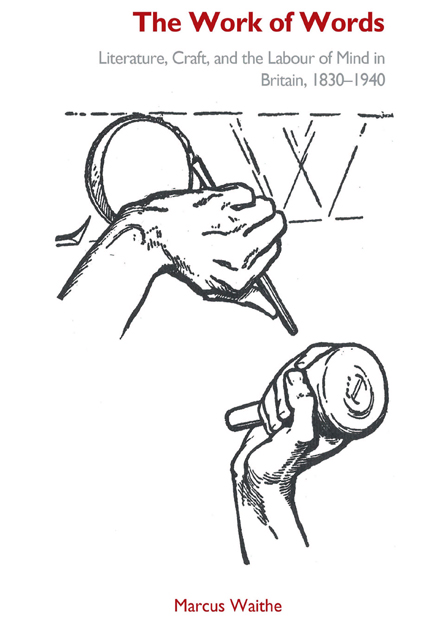4 - Participant Observers: Gladstone, Ruskin, Morris
Published online by Cambridge University Press: 13 April 2023
Summary
In the first and second parts of this chapter, on William Gladstone and John Ruskin, the emphasis shifts to a more gestural or performative approach. The question of demonstrating work arises again, but rather than representing physical tasks in their association with the labouring classes, they are here displaced and refracted through the body of the middle-class writer, a figure who selectively performs that work in a personal capacity. As Siskin pertinently observes, georgic literary forms offered a ‘means by which the work of writing itself came to be seen as a potentially heroic activity’. This development underpins the turn towards ‘husbandry’ apparent in my examples, and in the case of Gladstone, there are links between Virgilian precedent and ‘the promotion of landowners’ virtues’ or ‘nation building’. Only, there is less emphasis in this case on an interaction between ‘the heroic and the professional’; and little on deploying the georgic as ‘a tool in the making of modern professionalism’. The georgic operates here not so much to symbolise and empower ‘professional’ labours than to displace disembodied work. In that way, it re-fashions literature in its own image.
In this respect, georgic tropes interact with a cluster of mid nineteenth-century movements, beginning with revived interest in the Greek gymnasium. As if avoiding Charles Kingsley’s ‘Isle of Tomtoddies’ – a place of ‘all heads and no bodies’ – the followers of Muscular Christianity extended these principles of physical wellbeing into a broader field of human experience. Glimpses of a more integrated human life are equally prevalent in American literature, owing largely to the legacies of Carlylean idealism and the New England culture of unified sensibility. So writes Thoreau: ‘Can there be any greater reproach than an idle learning? ‘Learn to split wood, at least.’6 Far from defending the literary life by re-describing it as ‘work’, he accepts the customary slur of an idle distraction, proposing instead that writers atone for their defective calling by doing something else with compensating vigour. This spectacle of the author as labourer endures on both sides of the Atlantic well beyond the century’s close. By contrast with the fashion for depicting authors at their desks, it is an outdoor tradition. In this respect, the writer is seen demonstrably ‘at work’, but in an unaccustomed arena.
- Type
- Chapter
- Information
- The Work of WordsLiterature, Craft, and the Labour of Mind in Britain, 1830-1940, pp. 83 - 136Publisher: Edinburgh University PressPrint publication year: 2023



